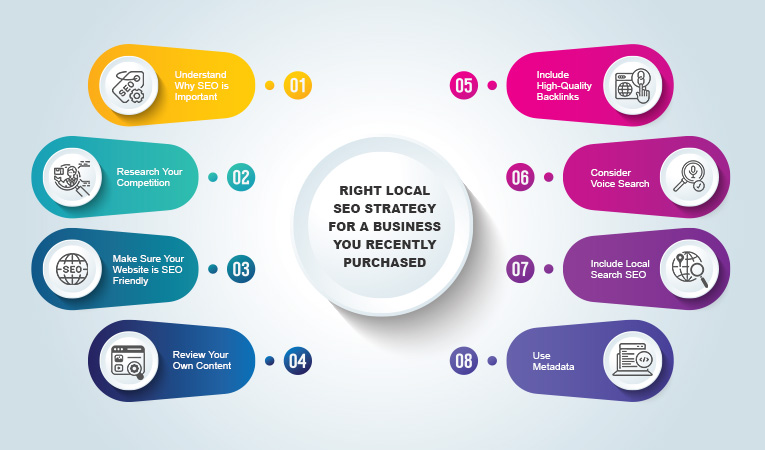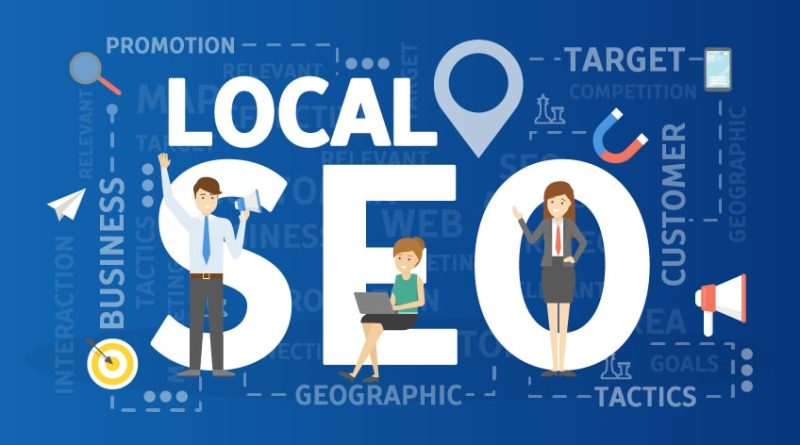Local SEO Hacks to Grow Your Business Online
In today’s competitive digital age, businesses need more than just a good product or service to succeed they need visibility. For small and medium-sized businesses (SMBs), this visibility often starts locally. That’s where Local SEO (Search Engine Optimization) comes in. Unlike traditional SEO that focuses on ranking nationally or globally, local SEO hones in on specific regions, cities, or even neighborhoods.Whether you own a bakery, a law firm, or a home repair service, implementing local SEO strategies can significantly improve your chances of appearing in local search results. In this article, we’ll explore local SEO hacks to grow your business online and dominate your local market.
What is Local SEO?
Local SEO is the process of optimizing your online presence so your business shows up in location-based searches. For example, when someone types “best pizza near me” or “plumber in Chicago,” Google prioritizes showing local businesses that match the search query.The cornerstone of local SEO lies in Google’s Local Pack (map listings), which highlights the top three businesses for local searches. Getting into this “three-pack” can skyrocket your visibility and customer acquisition.
Why Local SEO Matters
-
Increased Visibility: Over 46% of all Google searches are local in nature.
-
Targeted Traffic: Local SEO drives highly qualified traffic to your website and store.
-
Higher Conversions: Local searches result in purchase intent—76% of local mobile searches lead to a visit within 24 hours.
-
Competing with Big Brands: Small businesses can outperform large corporations locally with the right strategies.
Local SEO Hacks to Grow Your Business Online
Here are proven hacks you can use today:
1. Optimize Your Google Business Profile (GBP)
Your Google Business Profile (formerly Google My Business) is the foundation of local SEO.
-
Claim and verify your profile.
-
Fill out every detail: address, hours, services, phone number, and website.
-
Upload high-quality photos of your business.
-
Keep business hours updated, especially during holidays.
-
Use keywords in your business description.
Pro Tip: Post updates weekly—special offers, events, or new services. Google rewards active profiles.
2. Collect and Manage Online Reviews
Customer reviews are the lifeblood of local SEO. Positive reviews signal trust to both Google and potential customers.
-
Encourage satisfied clients to leave reviews.
-
Respond to every review—positive or negative.
-
Address negative feedback politely and promptly.
-
Showcase reviews on your website.
Pro Tip: Keywords used in reviews also help your local ranking. Encourage customers to mention specific products or services.
3. Local Keyword Optimization
Target keywords that include your location. For example:
-
Instead of “best dentist,” use “best dentist in Houston.”
-
Add long-tail keywords like “affordable emergency dentist Houston TX.”
Place these keywords in:
-
Title tags
-
Meta descriptions
-
Headings (H1, H2)
-
Content and blogs
-
Image alt tags
Pro Tip: Use tools like Google Keyword Planner or Ubersuggest to find local keyword variations.
4. Optimize for Mobile Users
Over 60% of all local searches come from smartphones. If your site isn’t mobile-friendly, you’re losing customers.
-
Use a responsive design.
-
Ensure fast page loading speeds.
-
Add click-to-call buttons.
-
Use maps for easy navigation.
Pro Tip: Test your site’s mobile performance with Google’s Mobile-Friendly Test tool.
5. Local Link Building
Backlinks remain a strong SEO signal, especially from local websites.
-
Partner with local bloggers and influencers.
-
Get featured in local newspapers or online magazines.
-
Sponsor local events or charities.
-
Join local business directories and chambers of commerce.
Pro Tip: High-quality local backlinks are often more valuable than generic global ones.

6. Use Location Pages on Your Website
If you serve multiple areas, create dedicated landing pages for each. For example:
-
/plumbing-services-chicago
-
/plumbing-services-naperville
Each page should have:
-
Unique content tailored to that area.
-
Customer testimonials.
-
Maps and directions.
-
Local keywords.
Pro Tip: Don’t copy-paste the same content across different city pages—Google penalizes duplicates.
7. Add Schema Markup
Schema (structured data) helps search engines understand your business better. Use LocalBusiness schema to highlight your:
-
Business name
-
Address
-
Phone number
-
Reviews
-
Opening hours
Pro Tip: Use Google’s Structured Data Markup Helper to generate schema easily.
8. Leverage Social Media for Local Reach
Social media indirectly boosts local SEO. When people engage with your posts, it drives traffic and signals relevance.
-
Share local news, events, or promotions.
-
Use location-based hashtags.
-
Encourage check-ins at your business.
-
Collaborate with local influencers.
Pro Tip: Facebook and Instagram location tags can help increase discoverability.
9. Voice Search Optimization
Voice searches like “Hey Siri, find a nearby coffee shop” are growing rapidly.
-
Use conversational keywords (long-tail).
-
Answer common questions in your content (FAQs).
-
Optimize for “near me” searches.
Pro Tip: Create FAQ pages targeting questions like “Where can I find a [service] in [city]?”
10. Track and Measure Results
You can’t improve what you don’t measure. Use analytics tools to track progress.
-
Google Analytics → Track website traffic and user behavior.
-
Google Search Console → Monitor keyword rankings.
-
GBP Insights → See how customers find your listing.
-
Local SEO Tools → Tools like BrightLocal and Moz Local give advanced insights.
Pro Tip: Monitor competitor performance and adjust strategies accordingly.
Bonus Hacks
-
NAP Consistency: Make sure your Name, Address, and Phone number are consistent across all platforms.
-
Local Content Marketing: Publish blogs about local events, community activities, or regional news.
-
Geo-Tagged Photos: Upload images tagged with your business location to boost visibility.
-
Customer FAQs: Address common local queries directly on your website.
Final Thoughts
Local SEO is no longer optional—it’s essential. By implementing these hacks, you can boost visibility, attract more customers, and establish authority in your local market. Remember, success in local SEO is not about overnight wins but consistent efforts.If you’re a small business owner, these strategies could be the game-changer you’ve been looking for. The sooner you start, the faster you’ll reap the benefits of increased traffic, calls, and sales.
Frequently Asked Questions (FAQ)
1. What is Local SEO, and how is it different from regular SEO?
Local SEO focuses on optimizing your business to appear in search results for a specific location (city, region, or neighborhood). Regular SEO targets broader, often national or global, audiences. Local SEO emphasizes Google Maps, “near me” searches, and location-specific keywords.
2. Why is Local SEO important for small businesses?
Local SEO helps small businesses compete with larger brands by focusing on local markets. It ensures that when customers nearby search for services or products, your business shows up first. This drives qualified leads, store visits, and higher conversions.
3. How can I improve my Google Business Profile ranking?
-
Keep your business details accurate and complete.
-
Add high-quality photos and videos.
-
Post regular updates and promotions.
-
Encourage customer reviews and respond to them.
-
Use local keywords in your business description.
4. What are some free tools to help with Local SEO?
-
Google Business Profile (GBP) – For managing business listings.
-
Google Keyword Planner – For finding location-based keywords.
-
Google Analytics & Search Console – For tracking performance.
-
Moz Local and BrightLocal (limited free features) – For local citations and audits.
5. Do online reviews really affect my local search ranking?
Yes. Reviews play a significant role in local SEO. Google considers both the quantity and quality of reviews, as well as how often businesses respond. Positive reviews also build trust and encourage more customers to choose your business.
6. How can I optimize my website for “near me” searches?
-
Use conversational, long-tail keywords like “best coffee shop near me.”
-
Add your city, neighborhood, and landmarks in content.
-
Implement FAQ pages answering common location-based questions.
-
Ensure mobile-friendliness and fast load speeds.
7. What are NAP citations, and why do they matter?
NAP stands for Name, Address, Phone number. Consistency across all platforms (website, directories, social media) builds credibility with Google. Inconsistent information can harm your local rankings.
8. How long does it take to see results from Local SEO?
Typically, local SEO results can take 3 to 6 months, depending on competition, consistency, and optimization efforts. Regular updates and review management can speed up improvements.
9. Can social media activity boost Local SEO?
Indirectly, yes. Social media engagement drives traffic, builds brand awareness, and encourages customer interaction—all of which Google considers signals of authority and relevance.
10. Is paid advertising better than Local SEO?
Paid ads (Google Ads, Facebook Ads) can give quick visibility, but Local SEO provides long-term, sustainable growth without constant spending. The best strategy often combines both.




